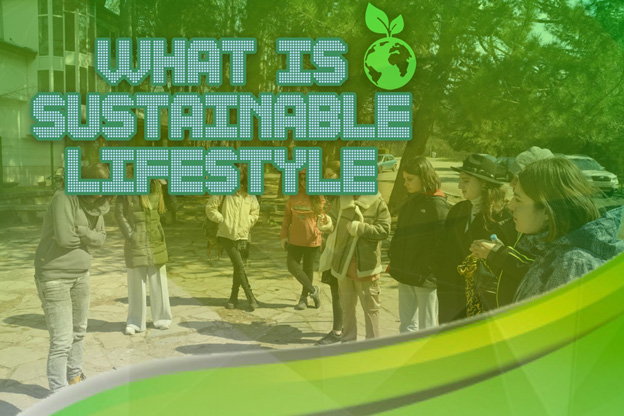What is a sustainable lifestyle?
Almost everyone nowadays knows what sustainability is, but sometimes we use the world without really thinking about it or going deeper into its meaning. So let’s have a quick look at it.
Sustainability includes four main components – human, social, economic and environmental.
Society first encountered the word sustainability through the “Our Common Future” report, published in 1987 by the World Commission on Environment and Presentation, which operates under the auspices of the United Nations.
Human sustainability
Human sustainability helps with developing human skills, knowledge and capacity. It supports organizations and the wellbeing of the society. Businesses are also involved in that process by promoting the value of the human capacity and their rights and values.
Society, people and everything around us is changing so fast, so we have to find a way to adapt. We are achieving it actually in some way, but this is not really the question. It’s more important to develop, to grow, to evolve and satisfy our daily needs, without endangering nature and also to think about the future generations and their wellbeing.
Environmental sustainability
Environmental sustainability is about stabilizing the currently disruptive relationship between earth’s two most complex systems: human culture and the living world. The practice of environmental sustainability helps to ensure that the needs of today’s population are met without threatening the ability of future generations to meet their needs.
Environmental sustainability is concerned with issues such as:
- Shift to renewable resources
- Intergenerational decisions
- Protect health of ecosystems
- Avoid excess pollution
- Target welfare not GDP
While many individuals and communities have long recognised the damage that can be caused to our environment and that of the plants and animals we share our planet with, it is only relatively recently this has been acknowledged globally. The air we breathe and our rivers and oceans don’t recognize local, national or even continental boundaries – so we must all take care of them for each other.
Economic sustainability
There are several definitions of economic sustainability. Here is one of them-economic sustainability is equated with economic growth, which is considered sustainable as long as the total amount of capital increases. Increased economic capital can thus be allowed at the expense of a reduction of other assets in the form of natural resources, ecosystem services or welfare.
Long-term costs for the use of resources (human and material) are included in economic calculations.
- We must conserve resources long-term.
- We must live on the “returns” of the Earth’s natural resources rather than consuming them.
- Long-term economic sustainability concerns the present and future value of natural resources, like drinking water, as well as products, investments, consumption, markets and the global economy.
Social sustainability
Have you thought about the essence of social sustainability and its capabilities?
Social sustainability is the process of creating sustainable successful places that contribute to well-being in understanding what people need from their homes and jobs. Nowadays, social relations have become more developed and the society has started talking about ordinary problems. Such as: health, ecological condition and striving for a healthy life.
We can say that the merit of the social union is that the society has started to care more about the ecology; it has urged the population not to pollute the environment because the frequent talk about the consequences of ecosystem pollution has led people to take care of the ecosystem. Social connection is a way to discover a problem and talk about ways to solve it. There are plenty of examples that show the consequences of social connection, its possibilities by which people have learned to support each other, emotionally or physically.
Finally, we can say that social communication is a matter of discovering a problem and ultimately a means of finding ways to solve it. Which allows us to live in a better world and reminds us that man should not live in the present and should think about the future.
Sustainability is a way of living, a lifestyle. It helps us to reduce our footprint and to think about the future generations and the environment. Let’s inspire one another for making more conscious choices.
The article is part of the project “Forest tale” of AYVOB, funded by ESC of the EU.

